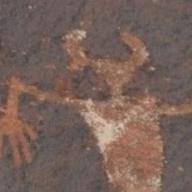Specifically, what do you think of the theologic/philosophical messages the story implies?
If you could identify yourself in your answer as a theist (which religion?) or atheist, that would be helpful. I'm curious. Thanks!
Theists and Atheists, what do you think of the story, "Life of Pi"?
2016-02-02 5:22 pm
回答 (11)
2016-02-02 5:36 pm
✔ 最佳答案
My answer would be that REALITY matters. The movie tries to convey the message that we should take a good story, even if it is not real, because it is all about how we feel.I strongly disagree. Reality absolutely matters. If you start believing stories, reality catches up with you sooner or later.
No matter how good a story may be, how good it makes us feel, how well it may mask the pain we feel... in the end we all have to face reallity. It does not go away even if we deny it.
We can try to escape the real world and live in a fantasy, but that only makes us less able to deal with the world around us. Less able to make good things happen, and prevent bad things from happening. Denying reality makes us vulnerable, and it makes us wrong.
You may think reality is irrelevant, and you'd rather believe a colorful fantasy. The truth is we live in reality, and reality does not care about your fantasy, or your feelings. A charging bull will keep on coming, even if you close your eyes.
If we can't handle reality in its own terms... too bad for us. We are the ones who lose, because reality does not go away if we don't believe in it, and does not change to adapt to our desires. Reality is where we live, whether we like it or not.
No colorful story about a tiger, a carnivore island and a whale will help keep the next person alive, when they have to face a REAL survival situation.
2016-02-02 5:25 pm
I recently saw a review of the book online. I was very thankful that I saw the review and was able to avoid funding an author spouting such postmodern claptrap.
The whole idea of "if it make you feel good, it's true" is the thinking that leads to Nazism and religious terrorism.
What's ironic, is that I bet the author thought he'd come up with a clever compromise between atheism and theism (as well as disputes between religion). But, in reality, all he did was insult everyone.
The whole idea of "if it make you feel good, it's true" is the thinking that leads to Nazism and religious terrorism.
What's ironic, is that I bet the author thought he'd come up with a clever compromise between atheism and theism (as well as disputes between religion). But, in reality, all he did was insult everyone.
參考: Atheist
2016-02-02 5:40 pm
What I remember most is
a - being disgruntled at the more unreasonable portions of the story (that is: the things that, reasonably, could not possibly be true, the things that made it impossible for me to "suspend my disbelief")
b - despite that, being hugely disappointed that the entire story was (within the setting of the movie) nothing more than one big whopping lie (That is: the movie itself informs us that the story was nothing but a lie.)
c - the "moral" of the story, that the lie was better than the truth, is something with which I cannot agree in that situation (in some drastic situations a lie can be better than the truth - but not in that situation)
a - being disgruntled at the more unreasonable portions of the story (that is: the things that, reasonably, could not possibly be true, the things that made it impossible for me to "suspend my disbelief")
b - despite that, being hugely disappointed that the entire story was (within the setting of the movie) nothing more than one big whopping lie (That is: the movie itself informs us that the story was nothing but a lie.)
c - the "moral" of the story, that the lie was better than the truth, is something with which I cannot agree in that situation (in some drastic situations a lie can be better than the truth - but not in that situation)
2016-02-02 7:08 pm
I loved the book. I don't agree with the message you should live your life based on pretty lies because they're more entertaining. It's funny that religious people seemed to come away from book with their faith reinforced (Obama actually said that). To me, it just reinforced that most people knowingly lie to themselves. I don't think willful ignorance can be good.
2016-02-02 5:46 pm
I thought it was a good story overall - but it makes a few disingenuous claims.
The main one is that the story will make you believe in 'god' - which is demonstrably untrue. If you already believe in 'god', then the story might reinforce your preexisting beliefs, but it presents nothing compelling to a non-believer.
Another is Pi's (or more accurately - the writer's) claim that he admires atheists because he 'appreciates an atheist’s ability to believe in the absence of God with no concrete proof of that absence'. While absence of evidence does is not necessarily evidence of absence, atheists do not 'believe in the absence of God' - instead, we *lack* belief in 'god(s)'. The burden of proof is on the person making the positive claim (i.e. 'god exists').
This differentiation follows into Pi's (or the writer's) supposed disdain for agnostics - who he says 'claim that it is impossible to know either way, and who therefore refrain from making a definitive statement on the question of God'. Between the burden of proof continuing to be on the one making the positive claim, and his definition of 'atheist' being flawed, his true feelings towards non-believers are exposed.
I consider myself to be 'Agnostic/Atheist' - not to 'hedge my bets', 'fence sit', etc. - it is simply two statements of fact. I don't claim to know whether or not 'god(s)' exist, but I do know I lack belief in them.
The main one is that the story will make you believe in 'god' - which is demonstrably untrue. If you already believe in 'god', then the story might reinforce your preexisting beliefs, but it presents nothing compelling to a non-believer.
Another is Pi's (or more accurately - the writer's) claim that he admires atheists because he 'appreciates an atheist’s ability to believe in the absence of God with no concrete proof of that absence'. While absence of evidence does is not necessarily evidence of absence, atheists do not 'believe in the absence of God' - instead, we *lack* belief in 'god(s)'. The burden of proof is on the person making the positive claim (i.e. 'god exists').
This differentiation follows into Pi's (or the writer's) supposed disdain for agnostics - who he says 'claim that it is impossible to know either way, and who therefore refrain from making a definitive statement on the question of God'. Between the burden of proof continuing to be on the one making the positive claim, and his definition of 'atheist' being flawed, his true feelings towards non-believers are exposed.
I consider myself to be 'Agnostic/Atheist' - not to 'hedge my bets', 'fence sit', etc. - it is simply two statements of fact. I don't claim to know whether or not 'god(s)' exist, but I do know I lack belief in them.
2016-02-02 5:41 pm
I is more fun to put myself in the place of Pi and live the adventure in my imagination as best I can. That is fun. I thought it to be a very nice adventure myself in my imagination but I would never want it to be my adventure in reality.
2016-02-02 5:35 pm
The main character believed in god. When faced with horrendous situations he made up a story to deal with it.
Visually stunning movie. Interesting and amusing book but no great insights.
Visually stunning movie. Interesting and amusing book but no great insights.
2016-02-02 5:33 pm
I was bored with it.
2016-02-02 6:10 pm
That tiger would eat that boy on that boat. It is that simple.
2016-02-02 5:48 pm
Reminded me of Joseph Campbell's work, the power of myth. Sure, facts, and figures and all that are part of reality, but there is another side to our brain and another side to our reality that is equally of value to humans. This is the side that speaks (and understands) in symbols and stories. What I got out of the movie is that people judge which is more important, one or the other, maybe we should start considering that both are important.
2016-02-02 5:54 pm
A person can know many truths by saying the angelic psalter of the Blessed Virgin daily and with care. She is the Queen of Heaven.
收錄日期: 2021-04-21 16:41:28
原文連結 [永久失效]:
https://hk.answers.yahoo.com/question/index?qid=20160202092257AAu6XWy



